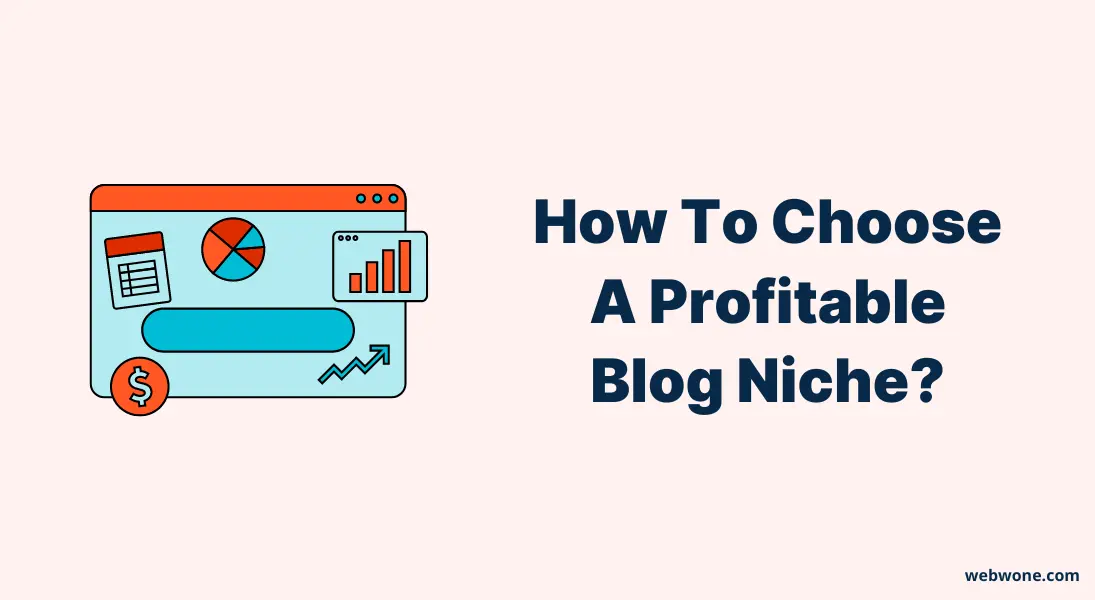Are you thinking about starting your own blog but are stuck on how to find a profitable blog niche? Well, this problem is common. When starting a new blog, everyone gets stuck when it comes to deciding on a niche for the blog. This is because deciding the blog niche is the most important thing and will determine whether your blog will succeed.
If you choose the wrong niche you probably won’t get the success you want. That is why this is a blog and I have told you how to choose a profitable blog niche for yourself that is also long-term. So stay tuned to the blog till the end!
What is a Good Blog Niche?
A good blog topic is ideally one that not only aligns closely with your interests but also resonates with a well-defined target audience. It should present viable opportunities for monetization, ensuring a sustainable venture. Moreover, the topic should maintain its appeal, keeping the content fresh and engaging for readers, while demonstrating long-term relevance within its field or niche.
How to Find a Profitable Blog Niche for You?
Choosing the best niche for blogging can be confusing and sometimes difficult. To make this process easier for you, here I have explained a step-by-step method for you to find a good blog niche.
1. Brainstorming
This is the first step to finding a good blog niche. It would be best to start with a niche that aligns with your interest. In this step, 10 – 15 blog niches based on your hobbies and professional expertise.
While listing these ideas you need to keep in mind that you should have knowledge of that field and you can write high-quality content for the target audience on the particular topic.
2. Market Research
After brainstorming 10-15 blog topics, you need to conduct market research on those topics. In this step, you need to research these things about your topics:
- The target audience size should be sufficient.
- Search trends for the product/service are increasing.
- The market is not overly saturated.
- The potential for high user engagement exists.
- There is room for product or service development.
- Competition is relatively low.
- It is compatible with social media promotion.
- Legal and compliance requirements are relatively easy.
- It can adapt to technological changes.
To conduct this research, you can use marketing tools like Google Trends, Semirush, Ahrefs, Social Media, Industry News, etc.
3. Competition Analysis
Now this is the crucial part. You should never start your blog with a niche that is too competitive. You can start by researching existing blogs in that niche. While doing this, you need to pay attention to a few things like how authoritative they are, their content quality, the content frequency, and the overall blog branding and quality.
This will give you an idea of how much effort is required to be successful in that field.
4. Monetization Potential
You would not want to start your blog in a niche where there are no monetization options available. Ultimately, you will need money to make a living and run your blog smoothly. So there should be enough monetization opportunities in that niche.

Here are the top monetization methods to make money from your blog:
-
Adsense
-
Affiliate Marketing
-
Selling Digital or Physical Products
-
Sponsorship
-
Offering Services
-
Offer Memberships
These are some top monetization methods you should look at when choosing your blog. Make sure you choose one of the most profitable blogging niches that allow for diverse monetization methods, including affiliate marketing, sponsored posts, and selling products or services. Multiple revenue streams can stabilize your income.
5. Content Opportunity
The best niche is one in which you can consistently create useful and evergreen content. Along with this, it should also have diversified content that your readers enjoy reading. Before choosing a niche, you need to make sure that:
-
People will like to share it.
-
You can consistently create great content.
-
You can monetize the content.
-
The content is evergreen and interesting.
6. Branding
Choosing a niche for your blog isn’t just about picking a topic that seems popular; it’s about aligning that niche with your personal values and expertise. Your blog should reflect who you are and what you stand for, so it’s essential to select a niche that resonates with you and your professional skills. When your content stems from your own experiences and knowledge, it not only feels more authentic to your readers but also positions you as an authority in that niche.
Your niche will define the tone, style, and direction of your content, so think about how it aligns with the image you want to project. A strong niche should do more than just attract readers; it should help you build a recognizable and trusted brand over time.
It’s also crucial to assess the scalability of the niche. A good niche should offer room for expansion and diversification. As you build your brand, you’ll want to explore related topics or introduce new content areas without straying too far from your original focus. This flexibility is key to long-term growth and brand development.
7. Refine and Narrow Down
Once you’ve brainstormed a some top niche for blogging, it’s time to refine and narrow them down. Start by evaluating the insights you’ve gathered from the above steps. It’s important to find a balance between a niche that’s popular enough to attract readers and one that isn’t so crowded that you’ll struggle to stand out.
Eliminate any niches with limited monetization or content potential. If a niche doesn’t offer enough opportunities to create engaging content or generate revenue, it may not be sustainable in the long run. Your blog should be something you can continually update with fresh, valuable content, and that can grow into a profitable venture.
As you narrow down your list, focus on how each potential niche aligns with your personal brand and interests. You’ll be more motivated and passionate about creating content if it’s something you’re genuinely interested in. Passion drives consistency, and consistency is key to building a successful blog. Your niche should be something you’re excited to write about, even when the initial excitement wears off.
8. Validate Your Niche
Before you finalize a niche, it’s important to validate it by creating some sample content pieces. This step is crucial to ensure there is genuine interest in the topic and that it resonates with your target audience.
Once you’ve published a few sample posts, share them on social media and with your friends. And see if readers are interacting with your content. Are they leaving comments, sharing posts, or subscribing to your email list? These are good indicators that your niche has potential.
Additionally, use tools like Google Analytics to monitor the performance of these posts. This data can help you determine whether your chosen niche has room for growth and if it’s worth pursuing further.
9. Finalize
After you’ve validated your niche, it’s time to make a final decision. Review and analyze the results from your validation process. Did your content perform well? Did it attract the right kind of audience? If the answer is yes, then you’ve likely found a strong niche that’s worth pursuing. I suggest you always choose the best niche for blogging with low competition.
Finalizing your niche means you’re ready to commit to it fully. This is a big step, as it sets the direction for your blog’s future. With a solid niche in place, you can now prepare for the next steps in launching and developing your blog. This includes planning your content strategy, designing your website, and starting to build your online presence.
Read Also: How to Choose a Good Name for Your Blog That Stands Out
Wrapping Up
Finding the right niche for your blog is neither easy nor difficult. By following these steps—branding, refining and narrowing down, validating, and finalizing—you can confidently choose a niche that aligns with your values, expertise, and long-term goals. You can also take advice from your friends who are already running a successful blogging or you can take advice from an industry expert.
If you have any questions about finding a blog, please ask them in the comment section.
